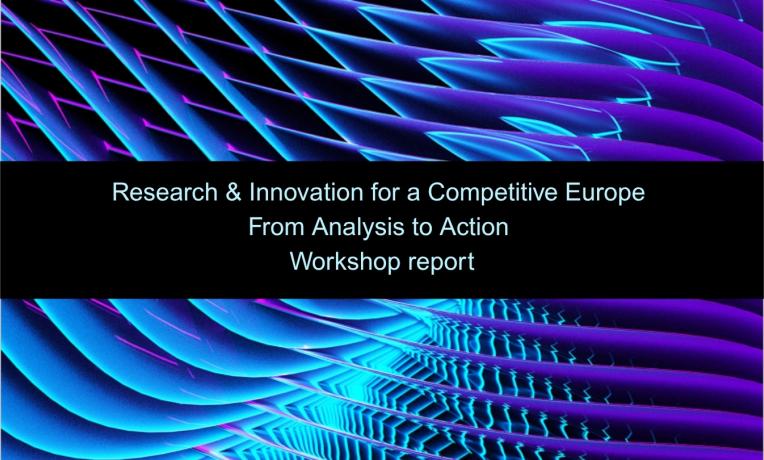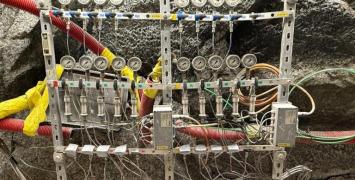Voices from Industry, Policy and Science align on driving Europe’s Competitiveness through research & innovation – new ERC report

As a follow-up of this event, the ERC has now published a report with conclusions. Hosted by ERC President Maria Leptin in Brussels on 10 April, this closed workshop convened a high-level group of participants, including Nobel Prize winner, Ben Feringa, European Commission Executive Vice-President Henna Virkkunen, Commissioner for Startups, Research and Innovation Ekaterina Zaharieva, and other senior policy-makers from the European Parliament and the national level, prominent industry personalities from a variety of various sectors, as well as leading researchers, among them ERC grantees.
This cross-sectoral event followed a growing sense of urgency over the past year regarding the need to enhance EU competitiveness. In this context, European Commission President Ursula von der Leyen emphasised ahead of her new mandate that research and innovation must be “at the heart of the European economy” and the influential Draghi report on competitiveness warned against complacency, stressing that Europe must step up its research investment.
The point of departure for these workshop discussions was that the EU economy is lagging behind its global peers, notably the United States. Since 2002, the EU-US GDP gap has widened from just over 15% to 30% in 2023. The primary factor behind this divergence is lower productivity in the EU. There was general agreement around the need to increase public funding in research that drives disruptive innovation and fosters wealth creation.
Maria Leptin said:
It was striking that this workshop with such diverse vantage points - with a wide span of sectors, disciplines and countries - led to a shared message about cross-sectoral collaboration and urgency to act, and, above all, that fundamental research is not a luxury. It is the very bedrock of innovation.
Key factors identified in the workshop as challenges to European competitiveness included:
- Fragmentation of the single market and inconsistent regulatory frameworks. The absence of a true financial union, but also incompatible standards.
- Underinvestment in both fundamental research and later-stage innovation.
- A culture of risk aversion often resulting in overly cautious regulation.
- Limited access to and interoperability of data across EU Member States.
- Duplication of efforts across EU Member States.
These barriers limit the scale and impact European innovators can achieve.
Participants outlined a series of actionable measures, including:
- Reinforcing fundamental research: Increase long-term, high-risk funding, create centres of excellence, and improve research careers, strengthening research–industry collaboration: Set up open-innovation hubs, boost mobility between academia and industry, and professionalise tech transfer and pre-competitive partnerships.
- Completing the single market: Enable regulatory sandboxes, reform merger rules, advance capital market integration, standardise data practices, and align innovation policy with industry needs.
- Improving data infrastructure: Centralise repositories, fund standardisation, incentivise sharing, support open-source tools, and harmonise GDPR implementation.
- Fostering risk culture and talent: Reform education to promote STEM and entrepreneurship, increase diversity, support cross-sector mobility, and ensure innovation-friendly regulation.
There was consensus across sectors around the need for long-term, risk-tolerant support for science - especially frontier research that cannot thrive under short funding cycles or narrow industrial objectives.
Many of the actions suggested in the report align with ongoing EU policy efforts and may reinforce the need to focus on areas that require sustained, strategic action.
Read more in the report from the workshop.
The workshop was followed by a public event that summarised the closed workshop with some of the participants as speakers. Watch the recording.





